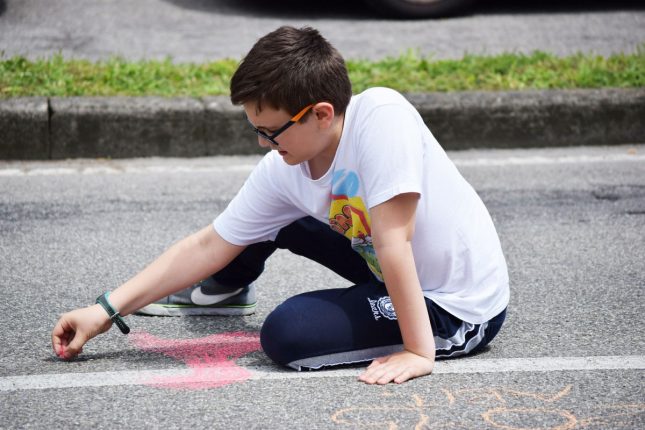A diagnosis of autism is perhaps the most difficult a parent can face. Many children with autism live their lives cut off from any real communication with those who love them, and are prone to meltdowns.
The wiring in the brain of an autistic child does not work like that of his peers. It appears that the pruning process which occurs in typical children to remove inefficient pathways created in early childhood does not occur, and the connections which should occur to enable communication with others are not made.
Sensory processing (making sense of all the information from the outside world via the senses) does not work well. The internal sensory system such as balance and proprioception (self movement) do not provide accurate information either. Rocking and repetitive behaviours are common.
Recent research into the effects of auditory retraining therapy in the USA has shown that many autistic children respond well to bone conduction listening therapy. Developmental movement therapy also assists the child to develop efficient pathways in the brain. In our clinic we use both types of therapy with children on the autistic spectrum.
Jeremy is an autistic child brought by his mother when he was four and a half.
His mother was very concerned that he would not be able to cope when he went to school at five. Jeremy would often repeat instructions given but did not carry them out. His speech was very unclear, had poor social skills and appeared to be in a world of his own.
He could barely hold a pencil and was drawing at a 2-3 year old developmental level.
At home he was having frequent meltdowns and crying spells . He was afraid of the sound of running water and would not go to the toilet on his own. At kindergarten he required a teacher aid, would often get easily frustrated and confused in social situations.
Jeremy’s mother decided to delay his entry into school. Instead, we put Jeremy on a programme of bone conducted , filtered music, beginning with a gentle introduction using low frequency band classical music.
It is well known that bone conducted sound is easier for highly oversensitive autistic children listen to . Also this frequency band has a calming effect on all listeners, especially those prone to anxiety and meltdowns.
At the same time as he was listening we engaged him in a simple multi – sensory movement programme, using his sense of balance, touch, vision and proprioception.
Early in the programme he lost his fear of the sound of the toilet flushing and began for the first time to use the toilet at kindergarten. He also began to talk to more people he did not know. His ability to write his name and recognise letters began to improve.
Six months after beginning the programme Jeremy entered school. His mother reports that he no longer needs a teacher aid, is focusing well, following instructions and keeping up with the other children in his class. His social skills, while still delayed, are improving and his behaviour at school very is good. His parents are delighted and Jeremy is a different boy.







is this kind of therapy available in new zealand? i have a daughter on the spectrum who has such bad anxiety and cannot function unless shes wrapped around my neck. hate seeing her so confused and scared everyday!!!
Hi Corinne, Sorry to hear that – tough! Yes- this kind of help is available in NZ. Where abouts are you?
Palmerston North.
I have a son with Autism and he has been at school now for 2 and a half years. He receives 20 hours a week ORRS funding. Unfortunately we have had very little support from the “Special Education Team” which has been assigned to him. We have only see the Speech Therapist twice this year and have now found out she is on maternity leave. As you can imagine I’m extremely frustrated by the lack of communication and support that we have received. I have expressed my concerns to the school and they have forwarded my email onto the “Special… Read more »
Hi Annette This situation sounds really frustrating – and we have added to that frustration by not checking our post. My sincere appologies for taking so long to get back to you. Firstly I would suggest you need a meeting with your Special Education Team (the school can arrange this) , speech therapist , Head of learning support , classroom teacher and yourself. Perhaps you might like to contact your local ASD support and ask if there is someone who could come with you as an advocate ( ring Altogether Autism 0800 273 463 ) . This service will also… Read more »